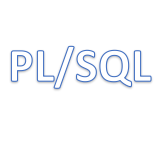There is a trend towards increased specialization of data management software for performance reasons. In this paper, we study the automatic specialization and optimization of database application programs -- sequences of queries and updates, augmented with control flow constructs as they appear in database scripts, UDFs, transactional workloads and triggers in languages such as PL/SQL. We show how to build an optimizing compiler for database application programs using generative programming and state-of-the-art compiler technology. We evaluate a hand-optimized low-level implementation of TPC-C, and identify the key optimization techniques that account for its good performance. Our compiler fully automates these optimizations and, applied to this benchmark, outperforms the manually optimized baseline by a factor of two. By selectively disabling some of the optimizations in the compiler, we derive a clinical and precise way of obtaining insight into their individual performance contributions.
翻译:由于绩效原因,数据管理软件日益专业化的趋势。在本文中,我们研究数据库应用程序的自动专业化和优化 -- -- 查询和更新的顺序,并随着数据库脚本、UDF、交易工作量和PL/SQL等语言触发器中出现的控制流程结构而得到加强。我们展示了如何利用基因化编程和最先进的编译技术,为数据库应用程序建立一个最优化的编译器。我们评价了TPC-C的手工优化低水平实施,并找出了能说明其良好性能的关键优化技术。我们的编译者完全自动化了这些优化,并运用于这一基准,以二分法超越了手工优化基线。我们通过有选择地去除编译者的一些优化,我们得出了一种临床和精确的方法,以了解他们个人业绩贡献。




















































